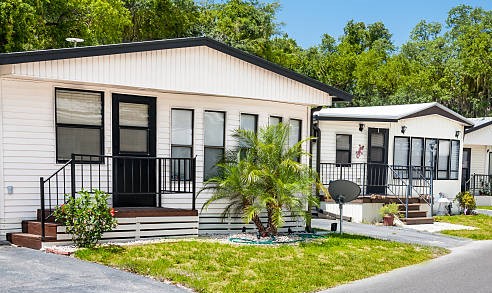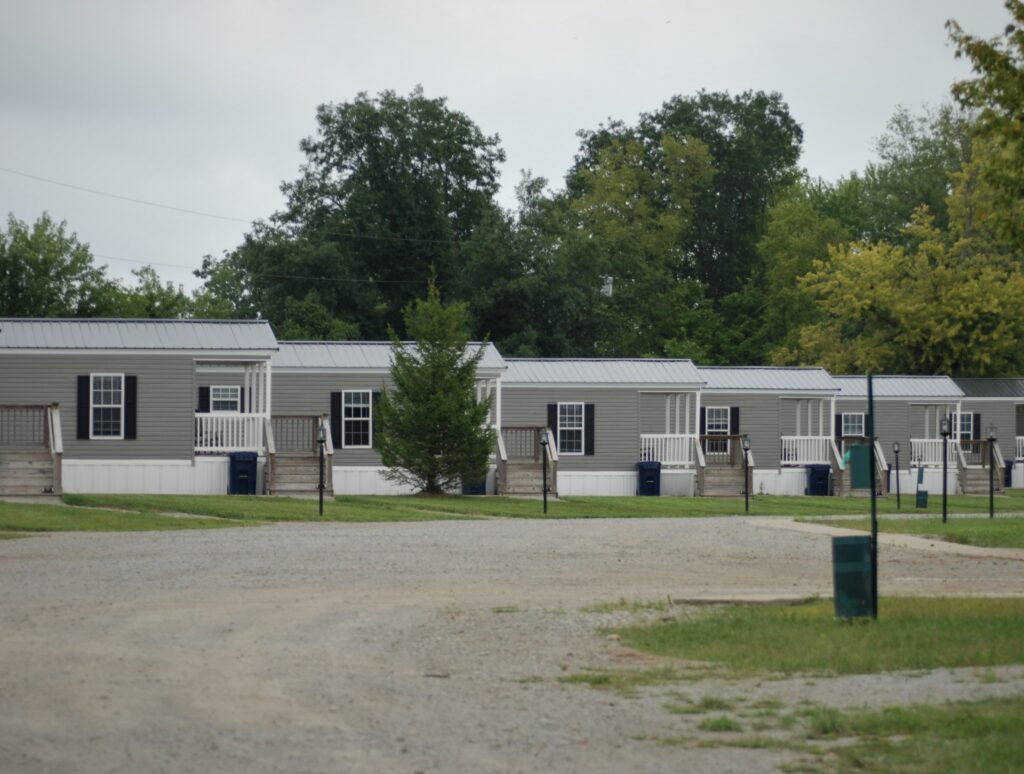

An inspection of a manufactured home is a thorough evaluation of the home’s condition, including its structure, systems, and components. Here are some common areas that might be included in a manufactured home inspection:
- Structure: The inspector will check the home’s frame, foundation, and support systems to ensure that they are sturdy and secure.
- Plumbing: The inspector will check the plumbing system for leaks, clogs, and other issues that could affect the home’s water supply and waste disposal.
- Electrical: The inspector will check the electrical system for safety and proper functioning, including the wiring, breaker box, and outlets.
- HVAC: The inspector will check the heating, ventilation, and air conditioning (HVAC) system to ensure that it is in good working order and that the home is properly insulated.
- Appliances: The inspector will check the home’s appliances, such as the refrigerator, stove, and oven, to make sure they are functioning properly.
- Roof and exterior: The inspector will check the roof for damage and leaks, and assess the exterior of the home for signs of wear and tear.
- Interior: The inspector will check the interior of the home for signs of moisture damage, mold, and other issues that could affect the home’s livability.
The specific criteria and areas evaluated during a manufactured home inspection may vary depending on the purpose of the inspection and the preferences of the inspector.
Pre-fabricated homes and Modular homes are both types of homes that are built off-site and transported to their permanent location. However, there are some differences between the two:
- Method of construction: Pre-fab homes are typically constructed using panels or modules that are built in a factory and then assembled on-site. Modular homes, on the other hand, are built in sections or modules that are transported to the site and then assembled to form a complete home.
- Speed of construction: Modular homes are usually faster to construct than pre-fab homes, as they are built in a controlled environment and are less subject to weather-related delays.
- Design flexibility: Modular homes offer greater design flexibility than pre-fab homes, as they can be customized to fit the buyer’s specific needs and preferences.
- Cost: Pre-fab homes are typically less expensive than modular homes, as they use a simpler construction method and fewer materials.
- Building codes and regulations: Modular homes are subject to the same building codes and regulations as site-built homes, while pre-fab homes may be subject to different regulations depending on the local jurisdiction.
- Lending: Modular homes are often easier to finance than pre-fab homes, as they are considered real property and are eligible for traditional mortgages.
Ultimately, the choice between a pre-fabricated home and a modular home will depend on factors such as cost, design flexibility, and personal preferences.
Differences between Trailer homes and Manufactured homes
Trailer homes and manufactured homes are similar in that they are both types of homes that are built off-site and then transported to their final location. However, there are some key differences between the two.
- Mobility: Trailer homes, also known as mobile homes, are designed to be moved from one location to another, while manufactured homes are typically built to be placed on a permanent foundation.
- Construction: Trailer homes are typically built on a single chassis with wheels, while manufactured homes are built in sections, or modules, that are transported to the building site and then assembled.
- Size: Trailer homes are usually smaller and more compact than manufactured homes, and may have limited design options and floor plans. Manufactured homes can range in size from single-wide to double-wide and can offer greater design options and customization.
- Quality: Trailer homes are often less expensive and may have to be ‘titled’ by the state motor vehicle agency.
- Lifestyle: Trailer homes are often associated with a more transient or nomadic lifestyle, while manufactured homes are often seen as a more permanent housing option.
Both trailer homes and manufactured homes have their own unique advantages and disadvantages, and the choice between the two will depend on the buyer’s specific needs and preferences, such as budget, size requirements, and mobility needs.